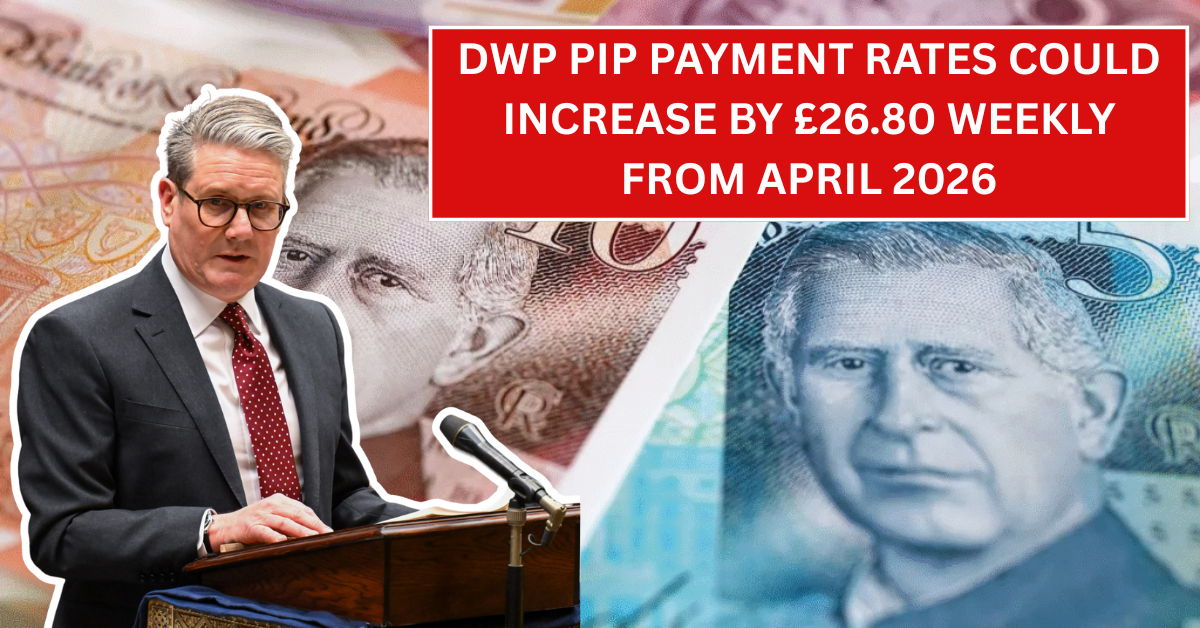The Department for Work and Pensions (DWP) in the UK is considering increasing Personal Independence Payment (PIP) rates by up to £26.80 per week from April 2026. This adjustment would raise the enhanced daily-living component to £113.85 and the mobility component to £79.95. The final decision is pending confirmation during the Autumn Statement later this year.
This potential hike in PIP payments is significant for many people who rely on this benefit to manage daily living and mobility costs. In this article, we will break down what these figures mean, why the change is being considered, and how it may affect PIP claimants. Keep reading to understand these changes in simple terms.
What is Personal Independence Payment (PIP)?
Personal Independence Payment is a UK government benefit designed to help people with long-term health conditions or disabilities cover extra costs related to daily living or getting around. PIP has two parts: the daily-living component and the mobility component. You can claim one or both depending on your needs.
The benefit is not means-tested, which means it does not depend on your income or savings. Instead, eligibility is based on how your health conditions affect your ability to perform certain activities. It is paid weekly and reviewed at regular intervals to check that people still need it.
Current Payment Rates and Proposed Increase
At present, the enhanced daily-living component is around £87.05 per week, while the enhanced mobility component is around £53.75 per week. The proposed increase would raise these amounts to £113.85 and £79.95, respectively. This means claimants could receive up to an extra £26.80 weekly.
This proposed increase is larger than usual annual upratings. The DWP’s draft proposal aims to better reflect the rising costs faced by disabled people for essentials such as care, travel, and equipment. The increase will only take effect if the Autumn Statement approves it.
Why Is the Payment Rate Being Reviewed?
Living costs, including energy, food, and transport, have gone up significantly in recent years. People on fixed incomes or benefits often struggle to keep up with these rising expenses. The DWP wants to ensure that PIP payments remain helpful and adequate for claimants to maintain independence.
By increasing the rates, the government aims to ease the financial burden on disabled individuals who may need costly support and equipment to carry out everyday tasks. This review also shows a commitment to making benefits fairer and more supportive in the long run.
How Does the Autumn Statement Affect PIP Payment Changes?
The Autumn Statement is a key fiscal event where the UK government sets its budget and economic plans for the upcoming year. It is during this statement that the final decision will be made on whether to approve the proposed PIP rate increase.
Until the Autumn Statement is published, the proposed changes remain drafts. Claimants and observers are advised to watch for official announcements after the statement. If approved, the new rates will start from April 2026.
Who Will Benefit from the Increased PIP Rates?
Those receiving the enhanced daily-living or mobility components of PIP will see the biggest benefit from the proposed increase. This includes people with severe disabilities that affect their ability to care for themselves or move around independently.
Some claimants may only receive standard rates, which might not be affected as much. To know exactly how much you would get if this increase happens, check your current award and compare it with the proposed rates.
What Should Claimants Do Now?
If you already receive PIP, it is important to keep your contact details updated with the DWP so you don’t miss any updates about benefit changes. You do not need to do anything immediately, but staying informed will help you plan ahead.
If you are not currently claiming PIP but think you might qualify, this proposed increase could make it a better time to apply. PIP can really help manage extra costs caused by disabilities. You can apply online or get advice from Citizens Advice or disability charities.
Conclusion
The potential increase in PIP payments by up to £26.80 weekly would be an important boost for many disabled people in the UK. Raising the daily-living and mobility components reflects the growing costs of managing a disability. The final decision will come after the Autumn Statement in the latter part of 2025.
For claimants and those thinking about applying, it is a hopeful sign that the government may increase support. Keeping up with official news and understanding these changes can help you make the most of benefits like PIP. Stay tuned for updates and plan accordingly for April 2026.




